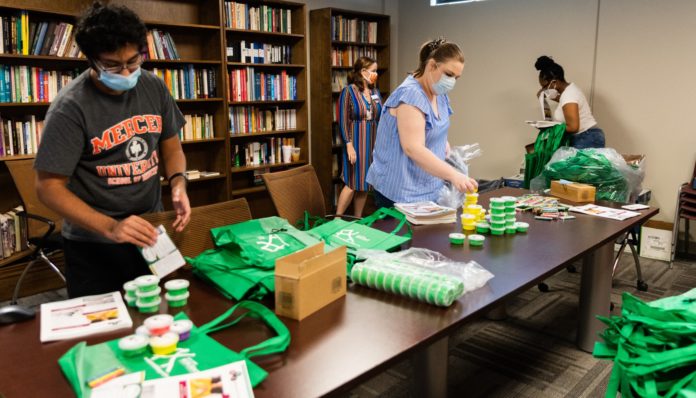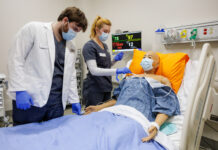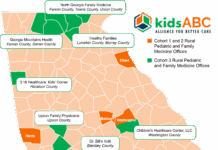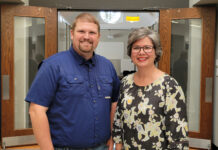At a time when children and families are experiencing unprecedented stress due to the pandemic, a new group aims to help them overcome adversity and build resilience.
Students from Mercer University‘s School of Medicine Master of Family Therapy and Doctor of Medicine programs recently gathered at the Mercer Family Therapy Center in downtown Macon to pack “resilience bags” for the group, known as Resilient Middle Georgia.
The bags help connect families with easy tools and resources to help them manage their stress, including journaling materials, deep breathing exercises, mindfulness activities, modeling clay and crayons, said Dr. Andrea S. Meyer Stinson, interim director of the M.F.T. program and associate professor of psychiatry and behavioral/pediatrics in the School of Medicine who is one of the group’s partners.
Five thousand of the bags are being distributed throughout a 14-county Middle Georgia region that includes Bibb County, where Mercer’s Macon campus is located. In addition, Resilient Middle Georgia is distributing check-in cards that allow neighbors to connect with each other in a safe and socially distant way.
“We really felt like in this time of physically distancing that families are more at risk in their community because they can’t connect with each other,” Dr. Meyer Stinson said. “They can’t connect with those resources they can typically get.”
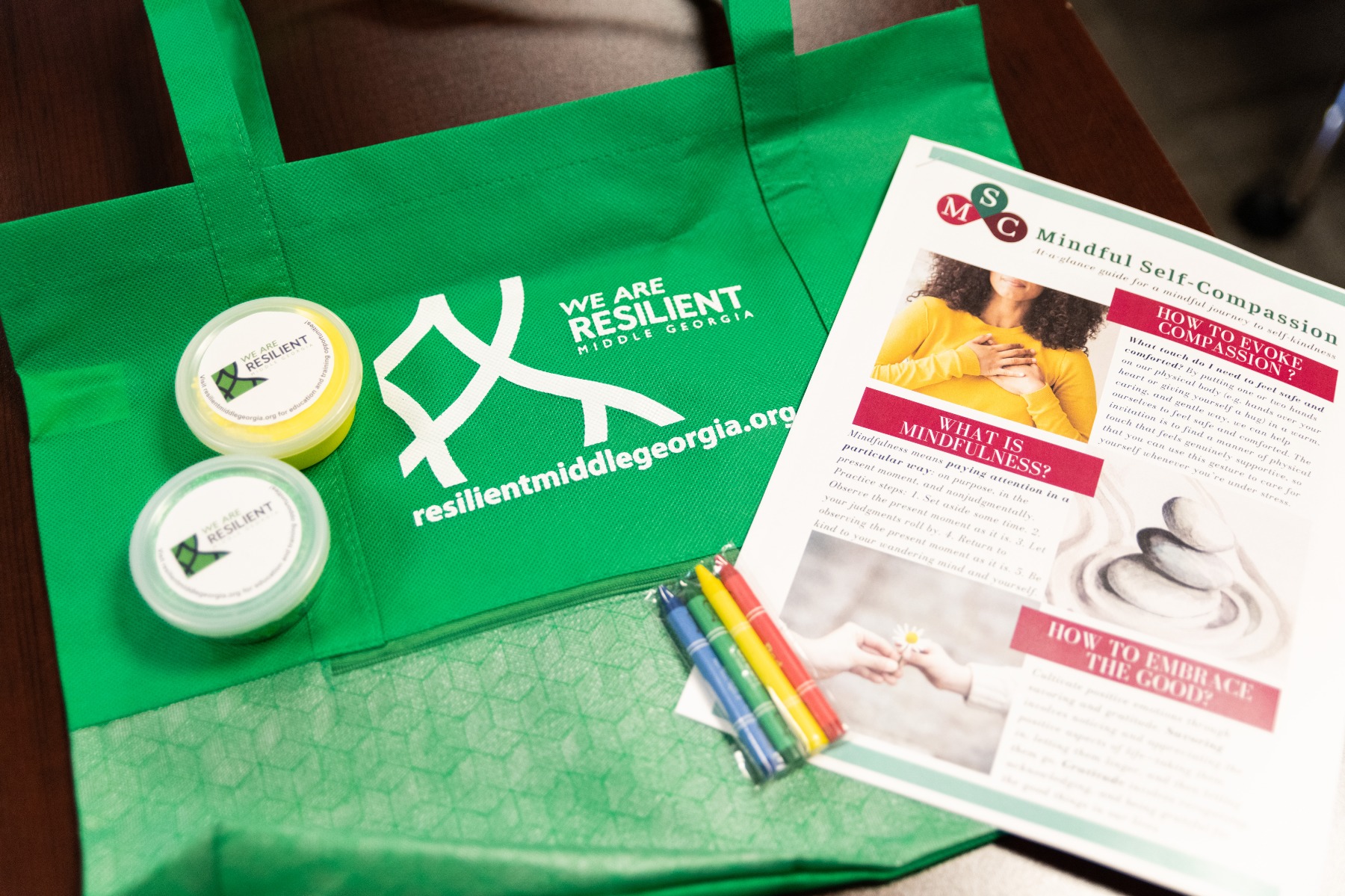
The resilience bags and check-in cards address an immediate need created by the COVID-19 pandemic.
In the long term, Resilient Middle Georgia aims to build a common language and understanding about the effects of adversity, trauma and adverse childhood experiences while empowering communities to address inequalities and effect systemic change.
The group is funded by a two-year, $200,000 grant from the Pittulloch Foundation, in partnership with Resilient Georgia; Community Partnership, a Bibb County collaborative; and the Community Foundation of Central Georgia.
“This project is meant to be embedded in all parts of the community and in all organizations,” said Jill Vanderhoek, executive director of Community Partnership in Bibb County. “It’s meant to support and accompany all the other projects that are going on in the community.
“We need all our organizations to be trauma informed when they’re interacting with families.”
This includes school systems, law enforcement, health care providers, social service agencies, faith communities and more.
But what does it mean to be trauma informed?
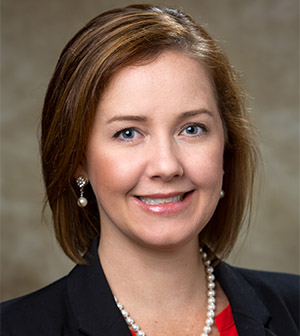
It means understanding that everyone is dealing with some sort of trauma and that their experiences affect how they relate to you, and your experiences affect how you relate to them, Dr. Meyer Stinson said.
“If you’re not acknowledging and naming and validating those experiences, it will be difficult to build a relationship based on trust,” she said. “And if someone doesn’t trust you as their provider, they will struggle to accept support and help.
“Ultimately, a trauma informed approach recognizes that trauma is common and can affect a person’s well-being and health.”
Resilient Middle Georgia is building and training a coalition to work together to create trauma informed communities. Once that happens, a door opens for real change to occur.
‘We’ve got to make this happen’
Over time, trauma informed communities have seen suicide and teen pregnancy rates drop and high school graduation rates go up, Dr. Meyer Stinson said. They’ve even experienced a positive impact on economic development, Vanderhoek added.
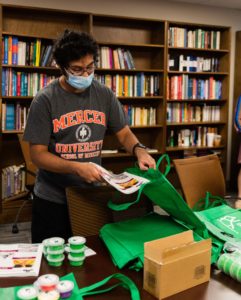
Right now, Resilient Middle Georgia is laying the groundwork for building trauma informed communities by completing community needs assessments, holding virtual trainings and, ultimately, meeting with community members and leaders in person.
“We realize that we can’t change all those bigger picture things right now, but if we don’t start now, then when is it going to happen? We’ve got to make this happen,” Dr. Meyer Stinson said.
Michael Kshatri, a second-year medical student working with the group, said being trauma informed can help physicians better meet the needs of their patients.
“Once (the trauma) becomes elucidated, we can not only help them solve their issues through a very holistic approach, but then we’re not asking the question of ‘What’s wrong with you?’ We’re asking the question of ‘What’s happened to you?’
“That’s where we truly become sensitive to culture and sensitive to background.”

